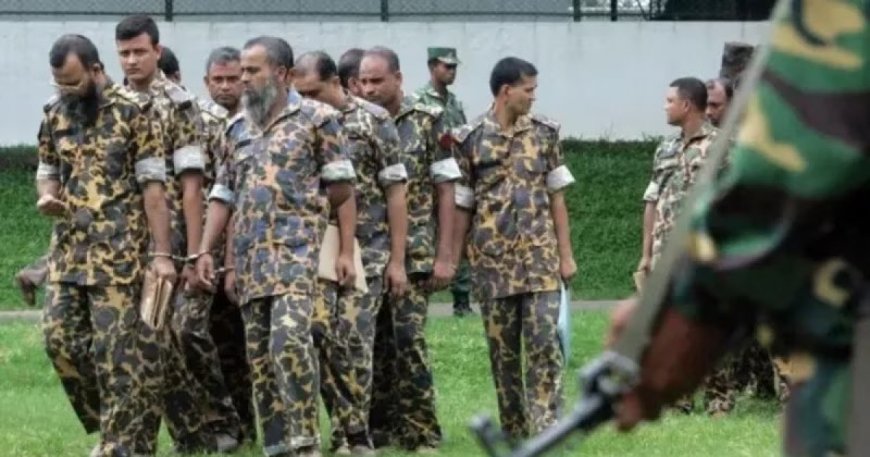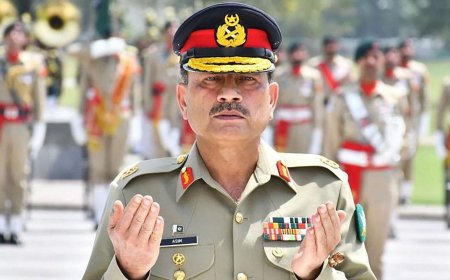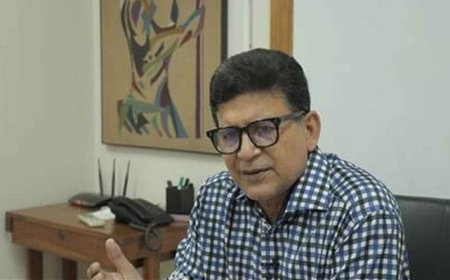Examining the needs and expectations of BDR personnel
The sole desire of the families who lost their loved ones in February 2009 is to seek justice.

A Tragic Chapter: Revisiting the 2009 BDR Mutiny and Its Aftermath
The Events of February 25–26, 2009
In February 2009, a gruesome tragedy unfolded within the headquarters of the Bangladesh Rifles (BDR), now known as the Border Guard Bangladesh (BGB). Over two harrowing days, my father, along with 56 other Bangladesh Army officers deputed to command the paramilitary force, was brutally murdered by the rank and file of the BDR. The massacre left the nation in shock, mourning the lives lost in an act of unparalleled violence. In response, 18,519 riflemen were arrested, with many punished under both military and civilian legal frameworks.
Legal Proceedings and Punishments
Most of the accused faced trial in the BDR's Special Courts under its Service Law, which prescribed a maximum sentence of seven years for mutiny. Those convicted have since served their sentences and are no longer part of the restructured force, now operating under the name BGB.
Additionally, the judiciary addressed charges of murder and misuse of explosives. Cases related to the killings were tried under the Penal Code, resulting in the High Court sentencing 139 individuals to death and 185 to life imprisonment. These cases are currently pending in the Supreme Court's Appellate Division. Meanwhile, cases involving explosives remain at the trial stage.
Protests and Demands
Years after the incident, on January 8, dismissed riflemen, their families, and families of incarcerated individuals staged protests in Dhaka. Their demands included reinstatement of those punished by Special Courts, the release of prisoners they claimed were innocent, and the repeal of a clause in the re-investigation commission's terms of reference that excluded a review of pending cases and appeals.
When their demands went unaddressed, protesters escalated their actions, eventually calling for the release of all prisoners, including those on death row, and the reinstatement of dismissed personnel. They alleged that outsiders disguised as riflemen were the real perpetrators and threatened to take drastic actions, such as breaking into prisons, if their demands were not met.
Escalation and the Role of Activists
On January 9, as students protested against the use of their campus for temporary court proceedings, the courtroom was damaged by a fire of unknown origin, delaying the hearing. In response, riflemen and their families blocked key intersections in Dhaka and vowed to continue demonstrations nationwide until the next hearing.
Support from the Anti-Discrimination Student Movement amplified the protestors’ voices. However, their advocacy for convicted individuals deeply hurt victims' families, as no effort was made to consider our sentiments or experiences.
The Pain of Victims' Families
For families like ours, the wounds of February 2009 remain fresh. During the mutiny, officers’ wives and children were subjected to unspeakable atrocities: dragged by their hair, beaten, and held without food, water, or basic necessities for 36 hours. Survivors recounted hearing the brutal killings of their loved ones, fearing they would face the same fate. These heinous acts were committed by riflemen, not external conspirators as claimed by the protestors.
The courts have meticulously examined evidence and witness testimonies, including accounts from victims' families. Dismissing convictions on the grounds of unverified claims or public pressure would undermine the judiciary and set a dangerous precedent.
Seeking Justice with Fairness
We acknowledge the need for expedited hearings of pending cases and believe in granting bail or acquittal to those proven innocent. However, questioning the integrity of the Special Courts, presided over by senior BGB officers, amounts to questioning the honor of both the BGB and the Bangladesh Army.
A Call for Reflection
As families of the victims, we are pained by the prospect of those who committed such heinous acts being freed. The memories of our loved ones deserve justice, not the erasure of their sacrifice. Any move to release the convicted without due process would not only betray the victims but also the nation that mourned alongside us.
What's Your Reaction?




















































































